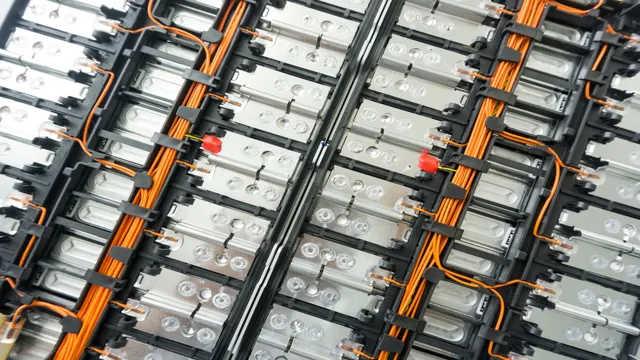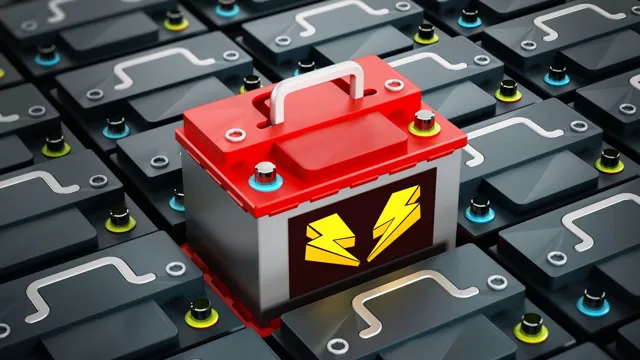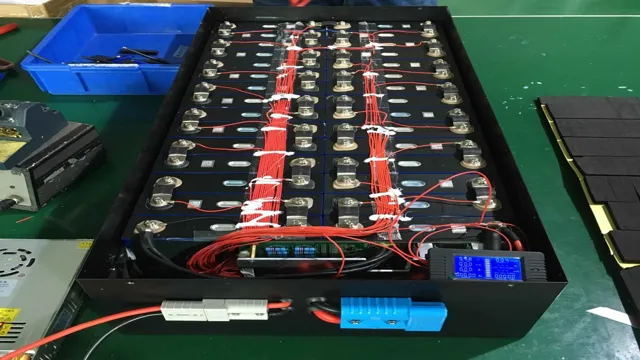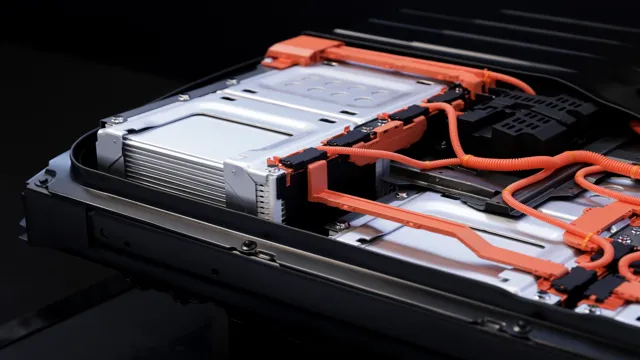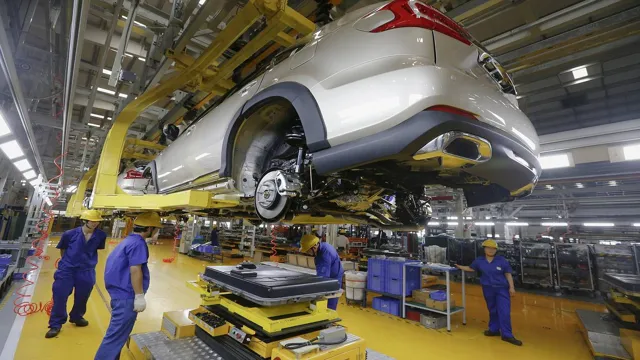Power Up! The Truth About Lithium Batteries in Electric Cars
Electric cars have been gaining traction and popularity in recent years as people are becoming more aware of the environmental benefits they offer. However, their success lies in their batteries, specifically the lithium-ion batteries that power them. In fact, electric car lithium batteries could potentially be the key to sustainable transportation.
Unlike conventional cars that use gasoline, electric cars use electricity to power the motor. This means that they emit zero pollutants and are much better for the environment. However, the batteries in electric cars are the most expensive and complex part of the car, determining their range, power, and lifespan.
Lithium-ion batteries, in particular, are the most popular type of battery used in electric cars due to their high energy density, longer lifespan, and faster charging time compared to other battery types. By using lithium-ion batteries in electric cars, we can greatly reduce our carbon footprint and reduce our dependence on fossil fuels. So, what makes electric car lithium batteries so sustainable? For starters, they can be recycled and reused, and their components can be repurposed for various applications.
Furthermore, advancements in technology have allowed for the production of more efficient and sustainable batteries, making them a more viable option for sustainable transportation. As the demand for electric cars continues to grow, so does the need for sustainable transportation solutions. By incorporating electric car lithium batteries into our transportation infrastructure, we can move towards a more sustainable future.
The key is to continue investing in research and development to drive innovation and make electric cars more accessible to the masses.
What are Lithium Batteries?
Electric car lithium batteries are rechargeable batteries made from lithium-ion technology. They provide a more efficient and longer-lasting source of power compared to traditional lead-acid batteries. Lithium-ion batteries consist of a cathode, anode, separator, and electrolyte.
When charged, lithium ions move from the cathode to the anode, creating an electrical current. This process can be repeated many times, making the battery reusable. Lithium batteries are becoming increasingly popular in the automotive industry due to their lightweight and high-energy density, allowing electric cars to have greater range and performance.
They also have a longer lifespan and are better for the environment as they don’t contain lead. Despite their benefits, however, lithium batteries can be costly and pose a potential risk of thermal runaway, highlighting the need for proper handling and disposal.
The Science of Lithium-Ion Batteries
Lithium-ion batteries have become a hot topic in recent years due to their increasing usage in various electronic devices and even electric vehicles. But what exactly are they? Lithium batteries are rechargeable batteries that use lithium ions to store and release energy. These batteries are popular due to their high energy density, long lifespan, and low self-discharge rate.
They consist of multiple components, including a cathode, anode, electrolyte, and separator. When the battery is charged, lithium ions move from the cathode to the anode through the electrolyte, and when the battery is discharged, the process is reversed. This flow of lithium ions is what makes it possible for the battery to store and release energy.
The use of lithium batteries has revolutionized the portable electronics industry, powering everything from smartphones to laptops, and even electric cars. As technology continues to advance, the demand for these batteries is only expected to increase.
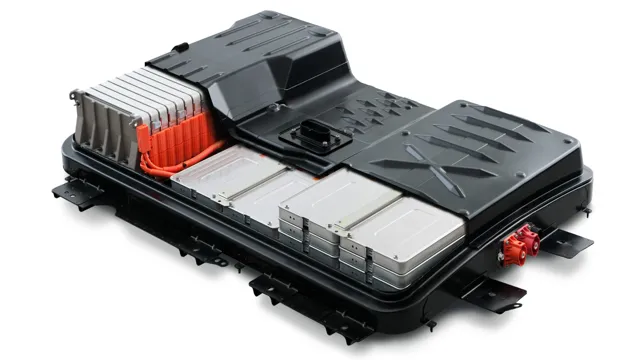
Advantages of Lithium Batteries in Electric Cars
Lithium batteries are a type of rechargeable battery that has become popular in electric cars due to their advantages. These batteries are lightweight and have a high energy density, meaning they can store more energy in a smaller size. Lithium batteries also have a long lifespan, typically lasting up to 10 years, which is beneficial for electric car owners as they do not need to replace the battery frequently.
Another advantage of lithium batteries is their fast-charging capability, which allows electric car owners to charge their vehicle quickly and get back on the road. Lithium batteries are also environmentally friendly as they do not emit harmful gases which contribute to air pollution. Overall, lithium batteries are an excellent choice for electric cars as they are reliable, efficient, and environmentally conscious.
How Lithium Batteries are Used in Electric Cars?
Electric car lithium batteries have revolutionized the way we think about transportation. Lithium-ion batteries, in particular, are the preferred choice due to their high energy density, long lifespan, and efficiency. Electric cars have a rechargeable battery pack that powers the electric motor and other accessories.
The battery pack can be charged using a wall socket, dedicated charging stations, or regenerative braking. Regenerative braking is when the car’s kinetic energy is converted into electrical energy and stored in the battery pack, thereby extending the car’s range. Lithium batteries in electric cars have several advantages over traditional fuel-powered cars, including lower emissions, noise reduction, and cost savings.
Electric cars are an excellent example of utilizing technology to create a cleaner, greener future.
Battery Pack Construction and Components
Lithium batteries are a popular choice for electric vehicles due to their high energy density and low weight. They are commonly used in electric cars to power the motor and other systems like the air-conditioning and headlights. These batteries are made up of individual cells that are connected in series or parallel to form a larger battery pack.
Each cell contains a positive electrode made of lithium cobalt oxide, a negative electrode made of carbon, and an electrolyte that allows for the flow of ions between the electrodes. In addition to the cells, the battery pack also contains a battery management system (BMS) that controls the charging and discharging of the batteries to optimize performance and prevent damage. The BMS also monitors the battery pack temperature, state of charge, and other parameters to ensure safe and efficient operation.
Overall, lithium batteries are a crucial component of electric cars and play an important role in their performance and reliability.
Battery Management System and Optimization
Electric cars have revolutionized the automobile industry, and one of the reasons for this is the use of lithium batteries in these vehicles. Lithium batteries offer several advantages over traditional lead-acid batteries, such as higher energy density and longer life cycles. In an electric car, these batteries provide the power needed for the motor and other electronic systems.
A battery management system (BMS) is used to monitor and regulate the charging and discharging of the battery to ensure optimal performance. This system helps to extend the life of the battery and prevent any damage that could occur from overcharging or discharging. With advancements in technology, lithium batteries are becoming more efficient, making them an ideal option for electric cars.
They are also more sustainable and better for the environment, making them a superior alternative to traditional gasoline-powered vehicles. The future of transportation is electric, and lithium batteries are a key component in making this a reality.
Charging and Discharging Speed and Efficiency
Lithium batteries are becoming increasingly popular in electric cars due to their high energy density, which allows for longer driving ranges. These batteries work by moving lithium ions between two electrodes, one positive and one negative, during charging and discharging. The charging speed can vary depending on several factors, including the battery’s state of charge, charging voltage, and temperature.
Similarly, the discharging speed can vary depending on the power demand of the electric motor. Efficiency also plays a crucial role: when the battery is charged and discharged quickly, its efficiency can drop, leading to more energy loss and reduced driving ranges. To maximize efficiency, many electric cars use a battery management system that regulates charging and discharging speeds, ensuring that the battery is charged as quickly as possible without sacrificing its overall performance.
Recent Developments in Lithium Battery Technology
Electric car lithium batteries have seen some significant advancements in recent years. One of the leading developments is the use of solid-state lithium-ion batteries, which offer higher energy density, quicker charging times, and improved safety compared to traditional lithium-ion batteries. These batteries use solid electrolytes instead of liquid electrolytes, which eliminates the risk of leakage or fire.
Additionally, researchers have been exploring the use of lithium-sulfur batteries, which have a higher energy density than lithium-ion batteries. However, these batteries are currently limited by their shorter lifespan and issues with recharging efficiency. To address these limitations, scientists are investigating new materials and production methods.
As electric cars become more prevalent, advancements in lithium battery technology will continue to be a critical factor in their widespread adoption.
Solid-State Lithium-Ion Batteries
Solid-state lithium-ion batteries are the next big thing in the battery technology industry. Recent developments have focused on enhancing their energy density to improve battery life and performance. Unlike traditional lithium-ion batteries, solid-state batteries consist of a solid electrolyte instead of a liquid one, which eliminates the risk of leakage and combustion.
This technology also opens up pathways to increasing energy density, which means higher energy storage capacity in a smaller size. With these advances, solid-state lithium-ion batteries are expected to revolutionize the electric vehicle industry, making EVs more energy-efficient and increasing their driving range. This innovation is also expected to have a significant impact on the renewable energy sector, where it can be used to store solar energy more efficiently.
With all of these advancements, it’s clear that solid-state batteries are poised to be the future of energy storage technology.
Lithium-Sulfur Batteries and their Potential
Lithium-Sulfur Batteries The world is ever-growing, and so are the energy needs. With the advancements in technology, the demand for sustainable and efficient energy storage has risen. Lithium batteries are a popular energy storage option but have their limitations.
However, recent developments in lithium battery technology have introduced the potential for Lithium-Sulfur batteries. These batteries offer higher energy density, longer cycle life, and lower cost than traditional lithium-ion batteries. With Lithium-Sulfur batteries, energy can be stored in a more efficient and sustainable way, reducing our dependence on fossil fuels.
Although these batteries are still in the development stage, their potential is enormous and could be a significant breakthrough in achieving a greener future.
Conclusion: The Future of Electric Car Lithium Batteries
In the world of electric cars, lithium batteries reign supreme as the power source of choice. These incredible batteries offer exceptional energy density and an impressive lifespan, making them the perfect solution for drivers seeking an eco-friendly and reliable ride. After all, who needs gas guzzlers when you can have the energy-efficient and cutting-edge technology of lithium batteries? So plug in, charge up, and hit the road in style with an electric car that runs on the power of lithium.
“
FAQs
What are lithium batteries used for in electric cars?
Lithium batteries are used in electric cars to store and provide power to the electric motor.
How do lithium batteries compare to traditional lead-acid batteries in electric cars?
Lithium batteries offer longer lifespan, higher energy density, and faster charging compared to traditional lead-acid batteries in electric cars.
Can lithium batteries be recycled from electric cars?
Yes, lithium batteries from electric cars can be recycled and reused for other purposes such as energy storage.
What are some factors that affect the performance of lithium batteries in electric cars?
Factors that affect lithium battery performance in electric cars include temperature, charging/discharging rates, and depth of discharge.
